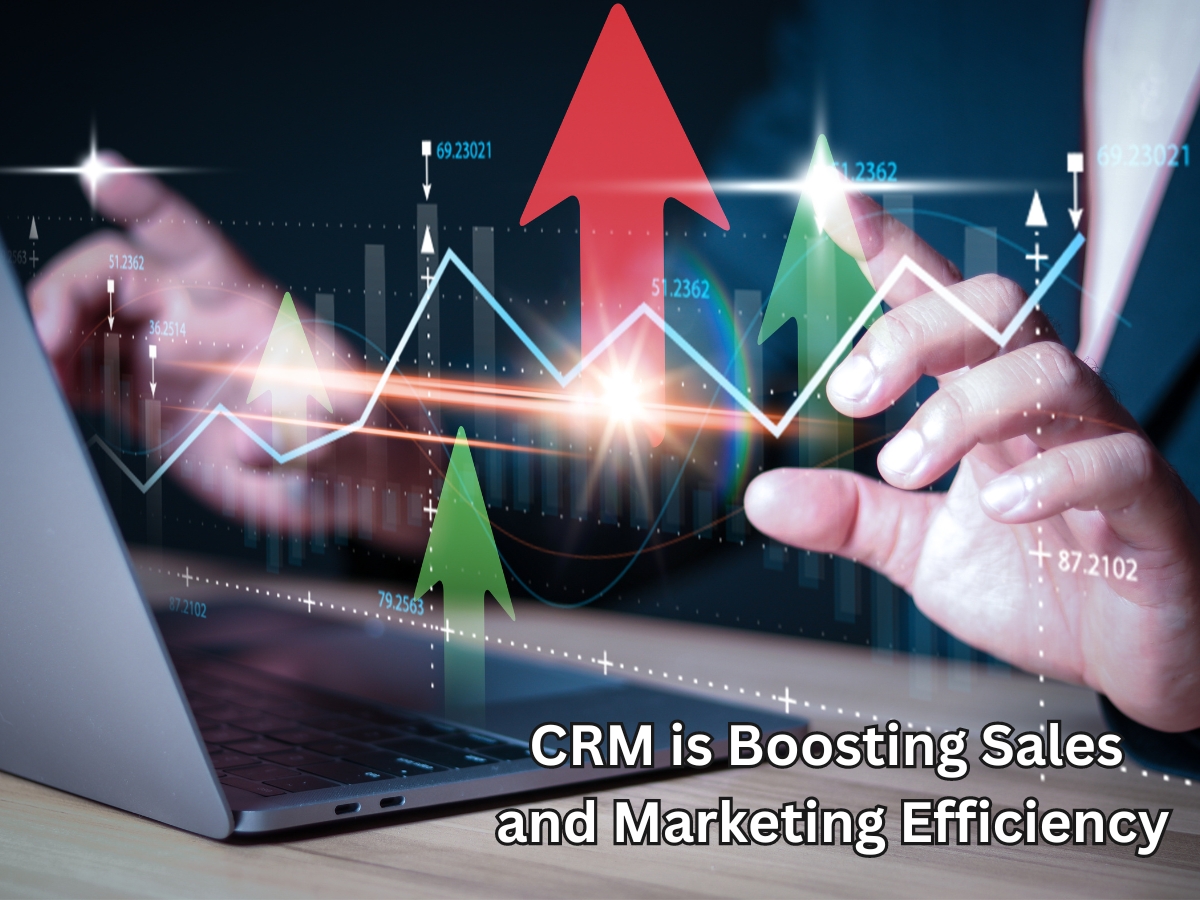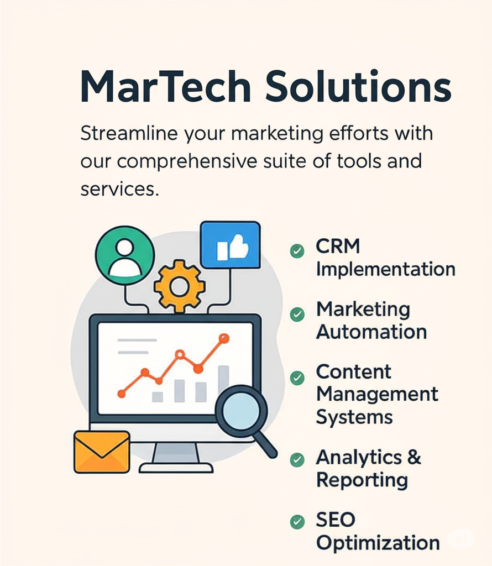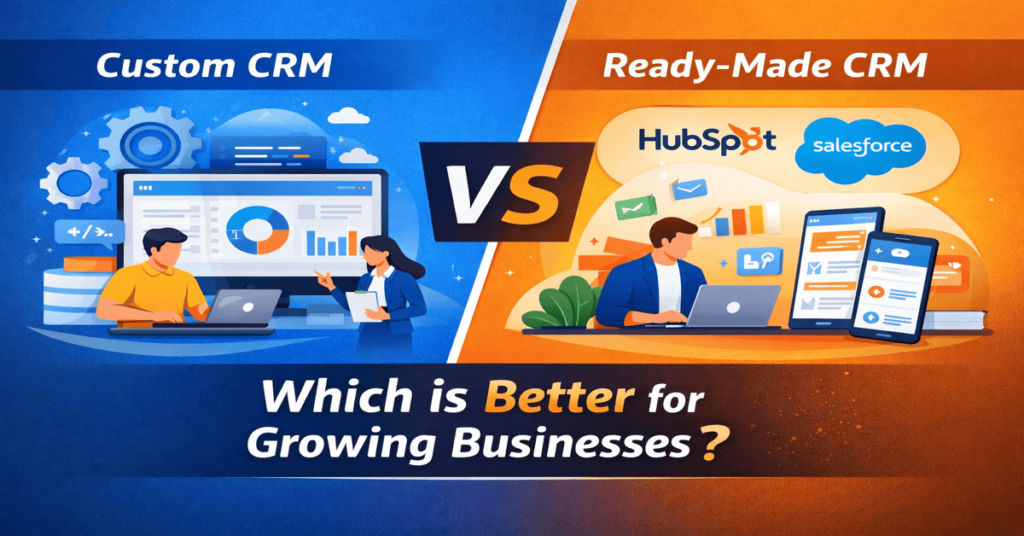
In today’s digital-first and highly competitive marketplace, businesses are under constant pressure to attract, engage, and retain customers. With customer expectations evolving rapidly, the need for efficient tools that help manage relationships and streamline operations has become more crucial than ever. This is where Customer Relationship Management (CRM) systems come into play. CRMs are no longer just tools to store customer data—they are comprehensive platforms that help businesses optimize operations, enhance service quality, boost marketing efforts, and increase revenue. In this blog, we explore how CRM systems empower sales and marketing teams, along with the challenges businesses face during CRM implementation.
1. Centralized Data for Informed Decision-Making
CRM systems bring all customer-related data—interactions, preferences, purchase history, support tickets—into a single, centralized platform. This centralized data environment helps eliminate the confusion that arises from scattered information across departments. When marketing and sales teams have access to consistent and real-time data, they can make more accurate decisions regarding targeting, communication strategies, and sales tactics. Ultimately, this unified source of truth supports improved planning and better business outcomes.
2. Improved Customer Segmentation

With advanced CRM capabilities, businesses can segment their audience based on demographics, behavioral patterns, purchase history, and engagement levels. This segmentation allows companies to tailor their messaging and campaigns to specific customer groups, enhancing personalization and relevance. Instead of wasting resources on broad, generic campaigns, marketers can focus on high-converting customer profiles. This approach increases engagement, boosts ROI, and helps overcome one of the key challenges in CRM implementation—delivering value to the right audience
3. Enhanced Sales Forecasting
A CRM platform gives businesses the ability to track and analyze trends across the customer journey. From lead generation to deal closures, sales data is collected and visualized to support accurate forecasting. With access to past sales performance and predictive insights, teams can set realistic targets, allocate resources wisely, and identify opportunities or risks early. This leads to improved pipeline visibility and better preparedness for future growth, which are crucial benefits of CRM-enabled forecasting.
4. Streamlined Communication and Collaboration

Effective sales and marketing alignment is vital for customer acquisition and retention. CRM systems foster better collaboration by creating a shared space where teams can track lead progress, share notes, view communication history, and access campaign metrics. This reduces redundancy, miscommunication, and departmental silos. By streamlining workflows and ensuring both teams are on the same page, CRM tool enhance productivity and promote a unified approach to customer engagement.
5. Automation of Routine Tasks
One of the most appreciated features of modern CRM systems is automation. CRMs can handle repetitive tasks such as data entry, email follow-ups, meeting reminders, and report generation. This automation reduces the manual workload on staff, allowing them to focus more on strategic activities that drive growth. In addition, automation minimizes human error and ensures that leads are nurtured consistently, improving conversion rates and speeding up the sales cycle.
6. Integration with Other Business Tools
Today’s CRM platforms are highly integrative and can connect seamlessly with email marketing tools, social media platforms, customer support software, and enterprise resource planning (ERP) systems. These integrations enable businesses to create a smooth workflow where data flows effortlessly between systems. By reducing the need to switch between multiple tools, companies can increase operational efficiency, maintain consistent messaging, and gain a comprehensive view of each customer’s journey.
7. Enhanced Customer Service
With detailed customer profiles and communication histories readily available, support teams can resolve issues faster and with greater accuracy. CRM systems allow agents to anticipate customer needs, personalize responses, and provide proactive support. This leads to increased customer satisfaction and loyalty. Businesses that use CRMs effectively can turn customer service into a competitive advantage, as personalized and efficient support is now a major factor in consumer decision-making.
8. Scalability and Flexibility
As businesses evolve, their processes, goals, and customer expectations change. CRM platforms are designed to scale with growth—whether that means accommodating more users, integrating new tools, or entering new markets. Most modern CRMs are customizable, offering features and modules that adapt to changing needs. This flexibility ensures that the CRM remains relevant and valuable at every stage of the business lifecycle, making it a long-term investment rather than just a short-term solution.
Conclusion
CRM systems have become indispensable in today’s cut-throat business environment. From helping businesses organize customer data to enabling personalized marketing, accurate forecasting, and better customer service, CRMs deliver value across multiple dimensions. However, the key to success lies in selecting the right CRM, integrating it with existing tools, and encouraging organization-wide adoption. When implemented strategically, a CRM system not only supports sales and marketing but transforms the entire customer experience—ultimately driving sustained growth and competitive advantage.
For more insights about CRM visit MarTech Panthers.
📩 Want to fix your automation? Let’s talk.
📞 Call us: +91 9762910165
📧 Email:info@martechpanthers.com
🌐 Visit: https://martechpanthers.com/



